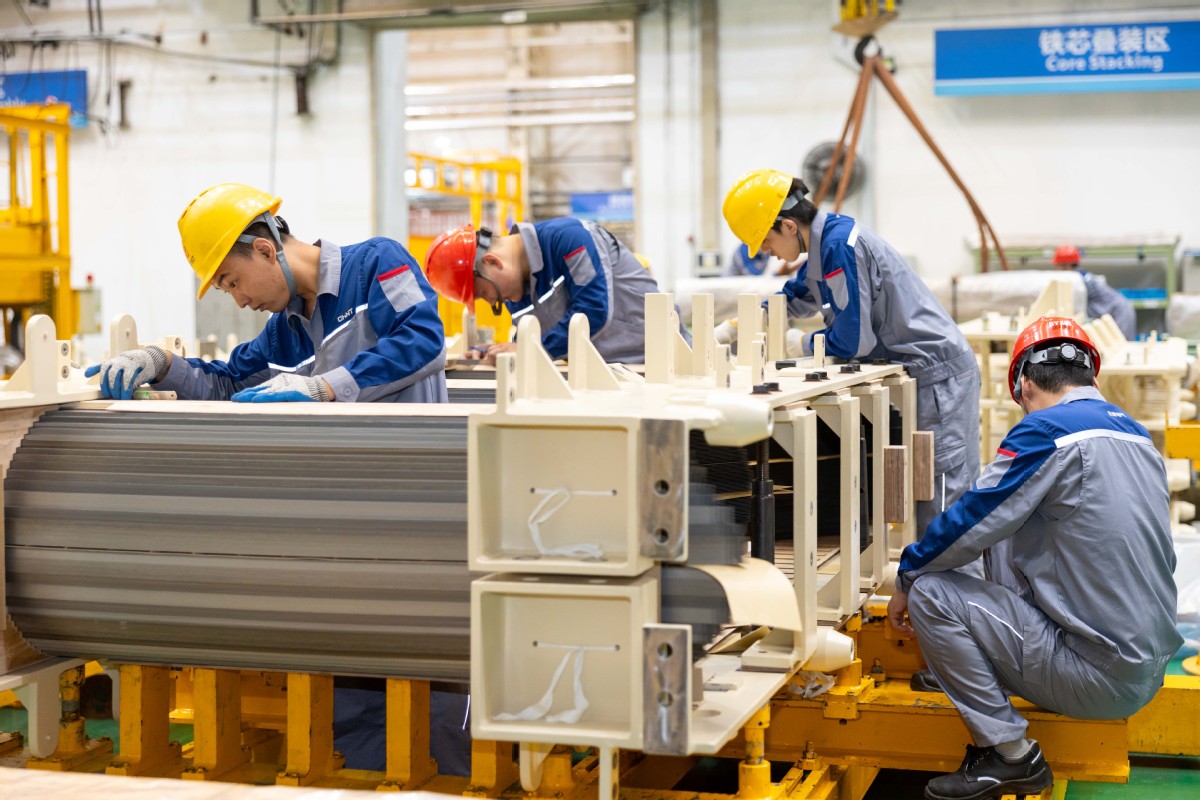
SHANGHAI — In Chint Group's Shanghai transformer factory, robots are engaged in stacking silicon steel sheets as thin as 0.23 millimeter layer upon layer according to design specifications, with a single robot capable of stacking over 1,680 layers in 24 hours, equivalent to the workload of six experienced workers in a day.
Another remarkable achievement is the use of oil in transformers.
While transformers typically use mineral oil, Chint's continuous development efforts have led to the adoption of vegetable oil, a renewable and degradable alternative. This transition has resulted in a significant reduction of carbon emissions by 98 percent.
The company has achieved a groundbreaking milestone with the development of a 750-kilovolt natural ester insulating oil transformer, the highest voltage level in the world to date, astonishing global industry players. Offering a comprehensive product range from 10 kV to 750 kV, Chint is now the world's leading manufacturer in terms of sales volume for natural ester transformers.
Chint Group began its journey as a switch producer in 1984 and has gradually evolved into a major global smart energy solutions provider. Today, the company integrates the entire industry chain of power generation, storage, transmission, transformation, distribution and use.
From frigid Finland to the deserts of Saudi Arabia and the tropical rainforests of Ecuador, Chint has expanded its footprint to over 100 countries and regions. According to Chen Chengjian, deputy chairman of Chint Group's electric company, the company's international business accounts for about 30 percent of total revenue.
Since 2006, Chint has ventured into the photovoltaic new energy field, quickly establishing international competitiveness in the development, design, investment, construction, operation and maintenance of photovoltaic power plants.
To date, Chint has constructed photovoltaic power plants with a combined capacity of more than 30 gigawatts around the world, which can provide more than 34 billion kilowatt-hours of green electricity and reduce carbon dioxide emissions by more than 30 million metric tons every year.
Notably, Chint's rooftop photovoltaic power station project has benefited over 1.3 million households in China, bringing an extra income of 1,000 yuan ($138) to 3,000 yuan for a family every year, while creating over 200,000 jobs in rural areas.
Innovation has always been a cornerstone in the growth of Chint Group's electric company, according to Chen.
As of the end of 2022, the company had developed over 900 products, obtained 404 patents, led or participated in revising 215 national industry standards, and engaged in over 30 industry-university-research collaboration projects.
In 2023, the electric company generated revenue exceeding 20 billion yuan, a significant increase from 4 billion yuan in 2016.
Another important factor contributing to the rapid development of Chint Group's electric company is its strategic location at the heart of the national expressway G60, which serves as a "science and innovation corridor" in the Yangtze River Delta, which connects Shanghai and eight cities in Zhejiang, Jiangsu and Anhui provinces.
Each of the nine cities has its own industrial base and advantages, and they can complement each other, said Guo Shuqing, deputy director of the G60 sci-tech innovation corridor joint conference office.
Guo added that innovation in business development is fostering further innovation among enterprises.
Xinhua

